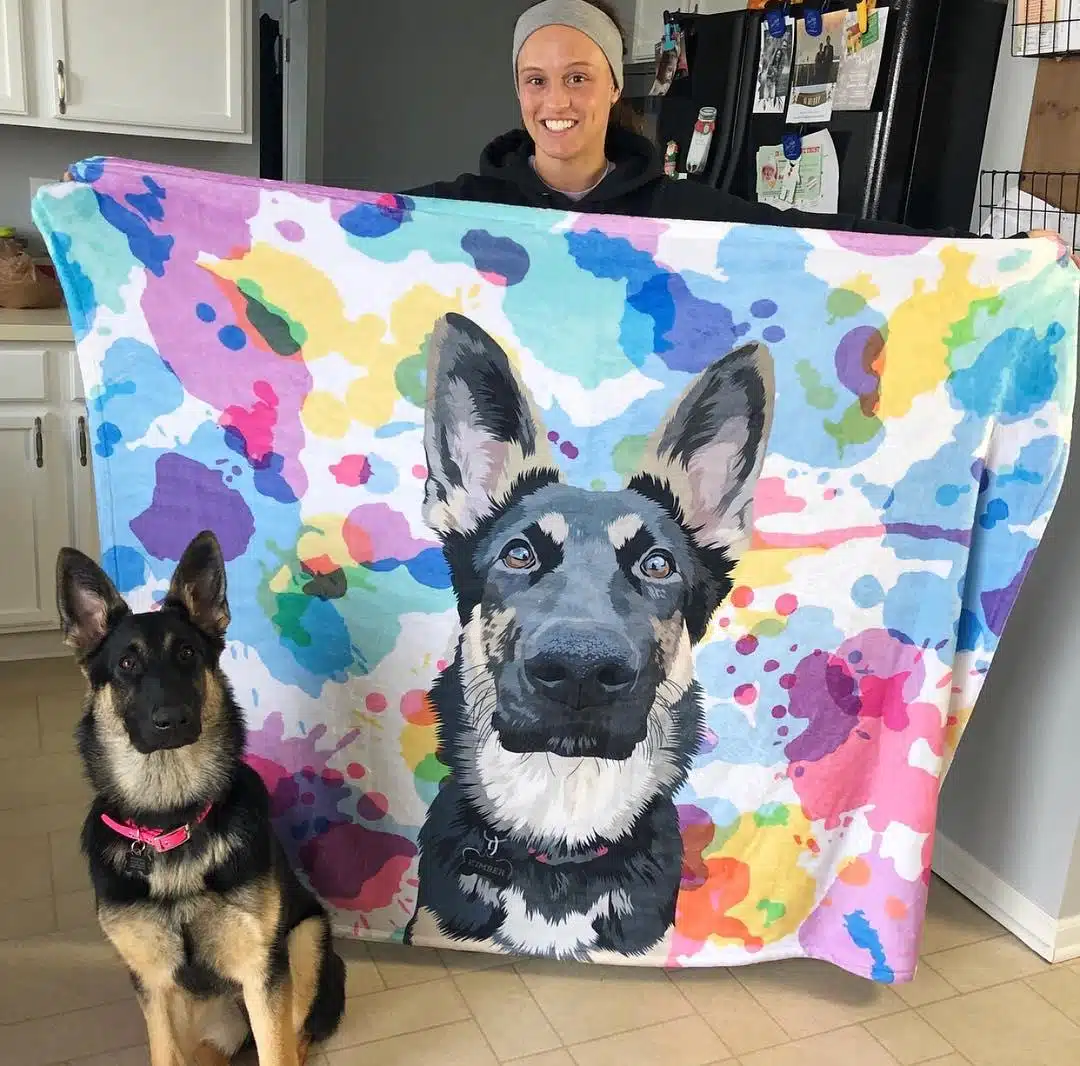What Do You Do If Your Dachshund Has Allergies?
Allergies can quickly bring down a healthy, active, and adventurous dachshund or any dog. And, when you ignore dog allergies, they may get worse – leading to more serious health issues including asthma.
Yes, dogs can have asthma. It’s not a condition that is limited to humans. So, it is very important to watch for signs your Dachshund has allergies and take them to the vet as soon as you can. The longer the wait, the worse the allergies will become.
Symptoms Of A Dog Suffering From Allergies
Skin issues are the most common signs of a dog suffering from allergies. This applies to dachshunds. The first sign is moderate to intense itching. A close examination should reveal signs of skin inflammation that may include red spots, rashes, and swelling.
Because of constant itching, this may be followed by secondary infection, lesion, hot spots, excessive shedding or hair loss, scabbing and scratch-induced wound. If you see your doxie scratching more than usual and it persists for a week or two, it’s time to bring your pooch to the vet.
Ruff, Gesundheit, Bless You!
One of the best ways for your adorable doxie to get rid of irritants is through sneezing. However, if the allergy is persistent, then sneezing becomes more and more pronounced. It may seem cute to watch your dog sneeze, but something is causing them discomfort and it should be checked out.
When sneezing does not work, your dog’s respiratory system may produce mucus in an attempt to mobilize allergens out of the respiratory tract. As a result, you may hear a wheezing sound and observe watery eyes or nose. Worse, your doxie may have difficulty breathing.
Sneezing, as a sign of allergy, can be caused by a wide range of factors. For example, if your dog has a seasonal allergy, it could be due to environmental pollutants such as pollen, mold, ragweed, and various types of grass.
Moreover, there might also be some allergens in your home. These may include dust, carpet powder, indoor cleaning products, perfume, and various industrial chemicals.
Since your doxie is small and has short legs, they are closer to the ground where allergens are more likely located. This puts your doxie at a greater risk of triggering an allergic reaction.
One of the best ways to combat dog allergies is by giving your four-legged buddy dog allergy chews. They are tasty and can be used as treats, making it an easy way for dogs to get protection from allergens.
As a matter of fact, AlphaPaw’s Allergy Chews are peanut butter flavored, and dogs love it. The chews boost a dog’s immune and digestive system. They contain a powerhouse list of ingredients including organic Turmeric, Bee Pollen, and Probiotics. They reduce anxiety and provide relief from seasonal & environmental allergies, including itchy dry skin.
A Dog Suffering From Food Allergies May Vomit and Suffer Diarrhea
Vomiting and diarrhea are more likely to be a sign that your cute dachshund has food allergies. If you notice your dog has a watery stool more than three times a day, for more than 24 hours, your dog needs to go to urgent care.
In addition to diarrhea, allergies can cause your dog to have frequent bouts of vomiting. Your pooch’s system will do whatever it can to remove the allergens. If they can’t remove the allergens in their body, more serious symptoms will appear.
If your pooch shows signs of dehydration including sunken eyeballs, breathing issues, and dry oral cavities, go to the vet as soon as you can.
Final Words
Prevention is key. To prevent allergies, identify the symptoms. Most importantly, talk to your veterinarian and get an allergy prevention regimen set up for your dog. Other things you can do include adding dog food specifically designed for dogs with allergies.
Ensure their bedding is hypoallergenic, remove allergens from their living space, and include allergy chews in their daily treat rotation. With consistent care and maintenance, your dog’s allergies will lessen and your pooch will enjoy life much more!
80% of Dogs Develop Arthritis or Joint Pain by 7 Years old – Here’s How to Protect Them
Most of us train our dogs when they are puppies to jump up on furniture. We think it’s harmless (and easier than always lifting them), but for dogs, couches and beds are very high compared to the size of their bodies.
Every time they jump it compresses their back and applies enormous force to their joints.
It’s no wonder that an incredible 80% of dogs experience arthritis or joint pain by only 7 years old.
Luckily, there is a vet-recommended solution.
It’s the PawRamp by Alpha Paw. An adjustable ramp that allows dogs to safely get on and off couches and beds. PawRamp makes joining you in bed or on the couch effortless and fun.
As a bonus, you can use code SAVE35 to get $35 off the PawRamp today.














